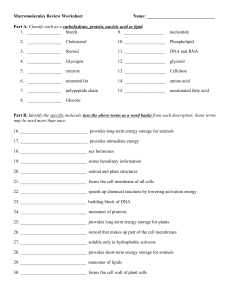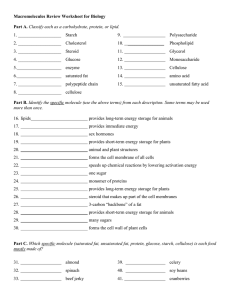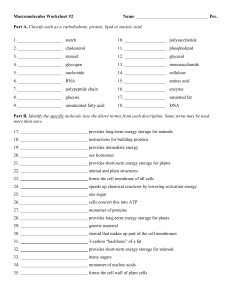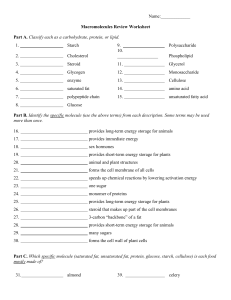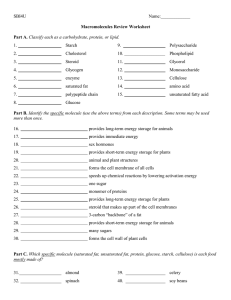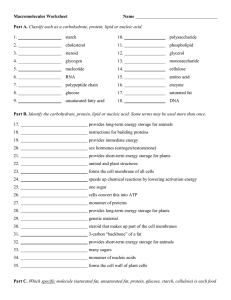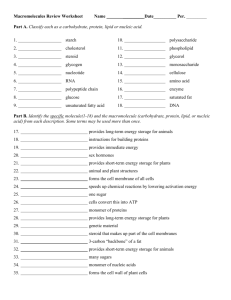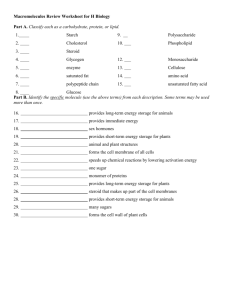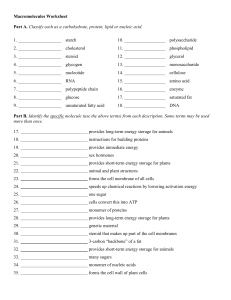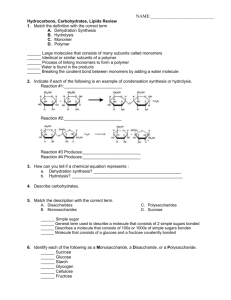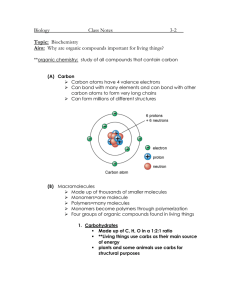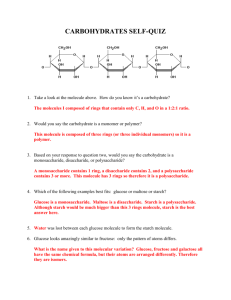Macromolecules Worksheet #2
advertisement
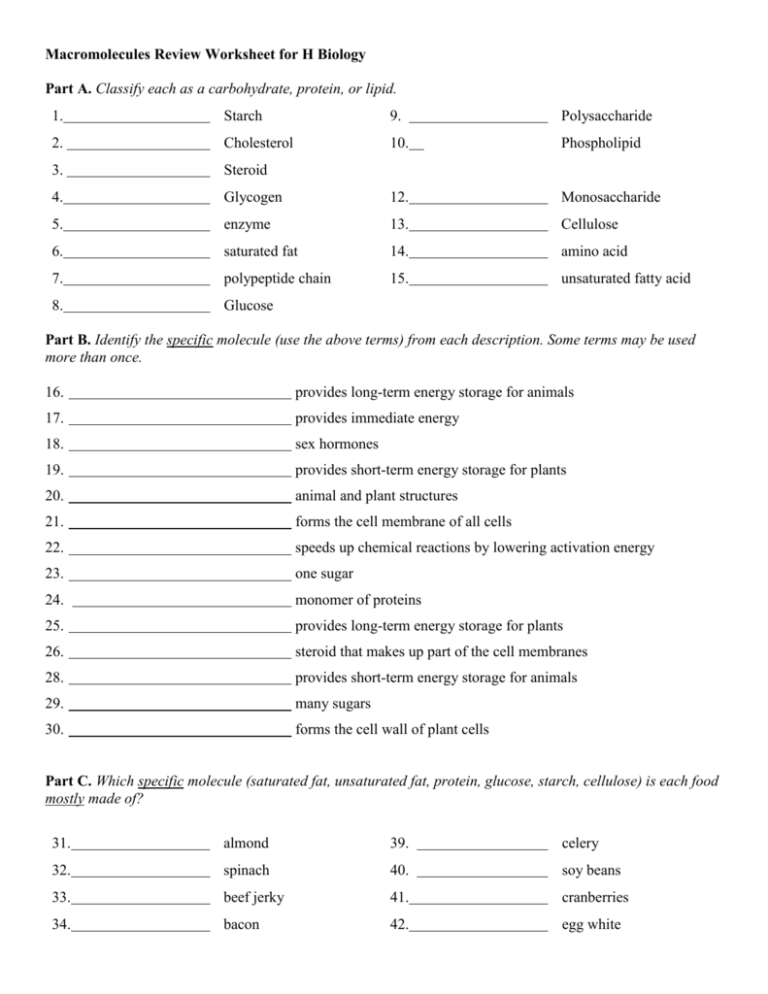
Macromolecules Review Worksheet for H Biology Part A. Classify each as a carbohydrate, protein, or lipid. 1. Starch 9. Polysaccharide 2. Cholesterol 10. Phospholipid 3. Steroid 4. Glycogen 12. Monosaccharide 5. enzyme 13. Cellulose 6. saturated fat 14. amino acid 7. polypeptide chain 15. unsaturated fatty acid 8. Glucose Part B. Identify the specific molecule (use the above terms) from each description. Some terms may be used more than once. 16. provides long-term energy storage for animals 17. provides immediate energy 18. sex hormones 19. provides short-term energy storage for plants 20. animal and plant structures 21. forms the cell membrane of all cells 22. speeds up chemical reactions by lowering activation energy 23. one sugar 24. monomer of proteins 25. provides long-term energy storage for plants 26. steroid that makes up part of the cell membranes 28. provides short-term energy storage for animals 29. many sugars 30. forms the cell wall of plant cells Part C. Which specific molecule (saturated fat, unsaturated fat, protein, glucose, starch, cellulose) is each food mostly made of? 31. almond 39. celery 32. spinach 40. soy beans 33. beef jerky 41. cranberries 34. bacon 42. egg white 35. noodles 43. table sugar 36. orange juice 44. popcorn 37. cheese 45. lobster 38. wheat 46. sesame oil Part E. Which food molecule (monosaccharide, polysaccharide, lipid, protein) would you eat if… 68. …you needed a quick boost of energy? 69. …you wanted to grow strong nails? 70. …you haven’t eaten in days? 71. …you wanted to grow healthy hair? 72. …you had a race tomorrow afternoon? 73. …you were getting ready for hibernation? 74. …you wanted to get bigger muscles? 75. …your next meal will be in a week? 3. Explain how polymers are related to monomers. Polymers are comprised of monomers.
